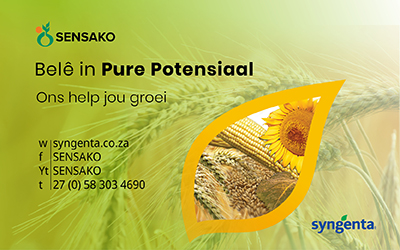Summer grain production regions in South Africa received good rains over the past season. Although this rain has been good for crop growth, it has also been conducive to pest and disease outbreaks.
The pest and disease diagnostic clinic at the University of Pretoria, initiated by Grain SA and funded by the Department of Science and Innovation and the Maize Trust, aims to assist producers to get ahead of these outbreaks by providing accurate information about grain health issues in their fields.
This is a service that has been launched to support all summer grain and oilseed producers in South Africa with scientific information tailored to them – and it relies heavily on the participation of the producers. The process starts when a producer is scouting a field and notices any sort of fungal growth, patches of plants not growing properly or any spots, stripes or holes in grain, leaves, shoots, roots or even issues in the soil. At this point, timing is crucial – the producer is advised to reach out to the diagnostic clinic as soon as possible in order to be guided through the process that has to be followed.
The producer will be advised on what to sample, how much of that sample is needed as well as how to package it before sending it off to the clinic by courier. At the diagnostic clinic a variety of tools and techniques are used to analyse the sample to track down the cause of the symptoms. Once this is complete, the producer will receive a detailed report with support made available to help with any questions.
The initial value of such a service is the accurate identification of the pest, disease or organism causing the disease. But this programme has even more long-term benefits for producers. The real value of diagnostics lies in the subsequent research conducted on the wide variety of isolates collected. The success of this programme relies on the important role producers play in submitting samples to the clinic.
Contact Lieschen de Vos at the University of Pretoria for assistance in packaging the samples and to let her know that she can expect them. Tel: 012 420 3939; email: diagnostic.clinic@fabi.up.ac.za.



















